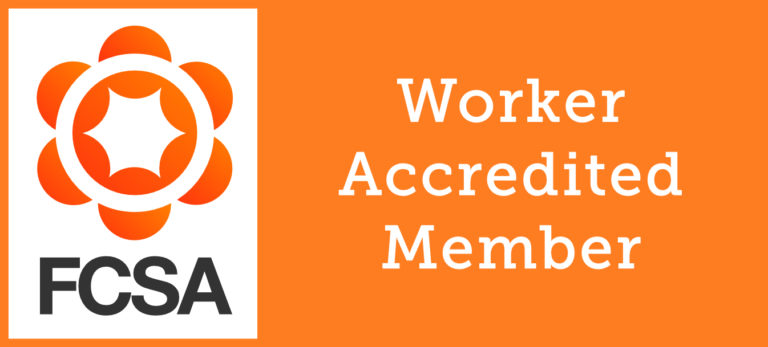
Recruitment has historically had a difficult reputation. When many people think of the staffing industry, a ‘laddish’, male-dominated, competitive and aggressive culture can quickly spring to mind. Although decades past did reward this kind of environment, the average recruitment consultant in 2021 is far from the outdated image – and has much to offer candidates, clients and the industry as a whole.
What do these qualities look like – and how can you know whether you’ve got the personality, aptitude and skill set needed to succeed as a recruiter? Generate’s contractor management specialists reveal three things that staffing specialists can incorporate into their development plans to fast-track their career success and make higher volumes of placements.
What Makes the Best Recruiters: 3 Skills You Need to Become a Great Recruiter
1. Communication
As a sales-related job involving hours on the phone and interviewing candidates every day, much of a consultant’s role involves telling candidates about job requirements and pitching different candidate profiles to client businesses. However, unsuccessful recruiters are usually those who make the mistake of also forgetting to listen.
Successful placements are built on strong, transparent and mutually beneficial relationships between recruiters, clients and candidates. True communication means getting to know your candidate inside and out, and tapping into your clients’ way of working to create a brief that will closely match applicants with business needs.
The best recruiters are able to understand:
- Their candidates’ wants, needs and true motivations
- What makes their candidates unique, and how to market them to potential employers
- The key differences between what clients are looking for and the realistic expectations of the market compared to the employer offering
- The true culture and ways of working of each client, to accurately communicate this to candidates early on in the process
- The best aspects of a client company and the employer qualities that a potential applicant would most value, and how to promote these to relevant talent pools.
Getting inside the minds of your clients and candidates, and practising continuous, honest communication with both, will reduce your attrition rate and find the best candidates for the role from the very beginning of the process.
2. Creativity
Great recruitment is more than just filling a vacant role: it’s about providing the right solution, in the right place, at the right time. This means not only finding a candidate whose career background matches a job advert, but figuring out whether the recruitment project is actually the best move for the client organisation in the first place.
Creativity isn’t just reserved for departments like marketing and design, artistic individuals or visual thinkers. The best recruiters have creative skills to enable them to think outside the box when problem-solving. Successful consultants tap into their client business’ way of working, company strategy and ambitions to:
- Write a job description from scratch, built from the ground up, to ensure the role will deliver an applicant who is skilled and experienced not only in the areas where the employer desires, but that will actually help the company to succeed
- Establish a client relationship built on empathy, respect and trust: hiring managers and executives alike will be much more honest about where and why the company struggles to recruit and retain, enabling you to adapt job advert messaging and hiring techniques
- Challenge existing beliefs and preferences. Even the best champion of diversity and inclusion will be unconsciously biased to hire the candidate who most closely resembles their personality, appearance and background. Some clients will hold incorrect assumptions due to legacy processes or vague advice provided by an external consultant. Ask questions and get to the bottom of the reasons behind the requirement and chosen approach
- Identify potential issues and roadblocks that may arise when recruiting for this individual, to have the right information ready to counter candidate objections and challenge incorrect beliefs or assumptions on the candidate’s part
- Help clients with their recruitment strategy overall, in addition to the current requirement. Talent attraction needs to be bespoke for every company to build and communicate a positive employer brand for the type of candidate your client wants, and improving the strategy for the first requirement will better inform future hiring needs.
3. Organisation
The stereotype of a recruiter is allergic to admin, putting in long hours but neglecting paperwork, and leaving the details to Operations and Compliance departments rather than checking to make sure everything has gone through correctly. Whilst failure to effectively manage any project or task is guaranteed to cause problems, this is especially true for a recruiter post-Covid.
New research reveals that over half of all new hires are not working out for employers in 2021. Employer circumstances can alter, individuals can have a change of heart, and sometimes the best laid plans don’t come to fruition – but the overwhelming reason behind this low hire retention rate is a mismatch between the candidate and client, that wasn’t spotted in the recruitment process.
Organised recruiters are attuned to both the big picture and small details. They can not only pick up on seemingly small differences in mindsets between employer and applicant, but will address these with all parties straight away, to prevent misunderstandings about daily responsibilities, flexible working arrangements or career progression. Organisation is vital to:
- Helping candidates prepare for interviews with the most likely questions they will be asked and the types of answers that employers are looking for
- Helping clients accurately assess each applicant at shortlist, interview and offer stage
- Ensuring everything is above board and legally compliant. Off-payroll status is becoming increasingly difficult to determine, meaning contractors could receive an inaccurate IR35 determination; the wrong off-payroll status can result in £millions in fines, as well as ruin potential placements and client relationships
- Making sure contracts and job offer letters match verbal agreements, limiting the risk of offer rejection, and removing delays in the offer and onboarding process.
Organisation also pays off the higher in your career you climb, as your candidate network continues to grow. For your contractors, keep a calendar notifying you weeks before their assignment will end, to get ahead of your competitors and line contractors up for their next role whilst they’re still available. With your permanent network, make sure to check in with those promising candidates who reached the final stages of the recruitment process. Particularly in today’s climate, many new jobs won’t work out, and fantastic candidates won’t be on the market for long, so grab them before they start jobhunting.
Support Your Candidates with the Best Payroll and Contractor Services
Generate provide tax, compliance and payroll support for thousands of contractor specialists and their recruitment agencies. Find out how our services could help you.
Interested in becoming an Associate Director or getting your next promotion? Discover 3 Ways to Quickly Advance on Your Recruitment Career Path.











